Lily of the Valley / Spring / Summer / Toxic
A sweetly scented woodland plant. All parts are highly poisonous to humans. It’s not too common in the wild and is mostly found planted in parks and gardens
Common Names
Lily of the Valley, May bells, Mary’s tears, Our Ladies tears, Lily-of-the-Valley.
Botanical Name
Convallaria majalis
Scientific Classification
Kingdom – Plantae
Order – Asparagales
Family – Asparagaceae
Physical Characteristics for Lily of the Valley
Leaves
The leaves are deep green in colour and large up to 20cm long and 5-7cm wide. Oval in shape more than 1 leaf grows from the same stem.
Flowers
The flowers are white and bell shaped, between 6-12 of the ‘bells’ hang down from one side of the stem and they have a lovely perfume.
Fruits
The fruits are small round, orange to red berry.
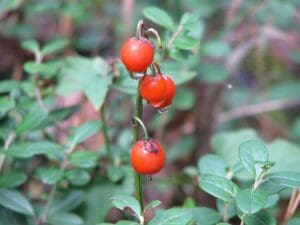
Habitat
Most often it’s found in well-established woodlands, it prefers damp, shady conditions.
Known Hazards
The plant contains around 35 cardiac glycosides compounds and is known to be seriously poisonous to humans and animals. If eaten it can cause abdominal pain, nausea, vomiting, and irregular heartbeats.
Could be Confused with
Before the plant flowers, it could be mistaken for Wild Garlic (Allium ursinum), the leaves do look quite similar from a distance and both plants are around in the same habitats at the same time of year.
Wild Garlic leaves grow individually and when crushed smell strongly of garlic, Lily of the Valley leaves are pretty much odourless and they grow in pairs.
Notes on Herbal Uses
Although the plant was used by herbalists in the past and there is even a reference to its medicinal properties in Robert Louis Stevenson’s novel Kidnapped where it is said to be “good against the Gout”, and that it “comforts the heart and strengthens the memory” and “restores speech to those that have the dumb palsey”.
There is no scientific evidence that it has effective medicinal uses.
Extra notes from the Foragers
The plant has a lot of symbolism around the world and is important to many cultures, for example many Christians believe that when Eve was exiled from the Garden of Eden she cried and her tears turned into this plants leaf.
Resources
https://www.rhs.org.uk/plants/4327/convallaria-majalis-lily-of-the-valley-conval-lily/details
https://www.gardenersworld.com/how-to/grow-plants/how-to-grow-lily-of-the-valley/
https://www.townandcountrymag.com/leisure/arts-and-culture/g2041/lily-of-the-valley-facts/
https://www.woodlandtrust.org.uk/trees-woods-and-wildlife/plants/wild-flowers/lily-of-the-valley/



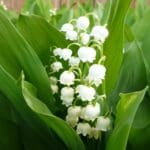
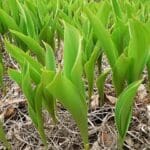
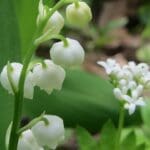
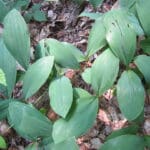
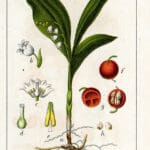
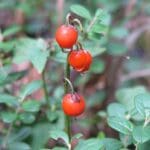



Leave a Reply
You must be logged in to post a comment.